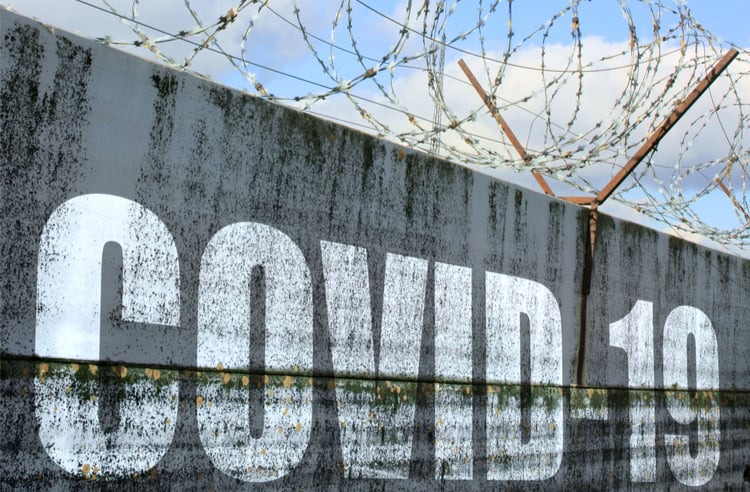Afternoon Briefs: Judicial council halts statewide COVID-19 bail schedule; Amazon pauses police use of facial recognition tech

Image from Shutterstock.com.
California ends statewide bail policy enacted to stop COVID-19 spread in jails
The California Judicial Council voted Wednesday to end a statewide emergency bail schedule enacted in early April in response to the COVID-19 pandemic. The rule set bail at $0 for people arrested for misdemeanors and some lower-level felonies. Justice Marsha Slough said individual counties can still set bail at $0 even after the statewide policy ends June 20. “The Judicial Council’s action better reflects the current needs of our state, which has different health concerns and restrictions county-to-county, based on the threat posed by COVID-19,” she said in a statement. “We urge local courts to continue to use the emergency COVID-19 bail schedule where necessary to protect the health of the community, the courts, and the incarcerated.” (The Associated Press, the Los Angeles Times, Courthouse News Service)
Amazon pauses police use of facial recognition software for one year
Amazon announced Wednesday that it will implement a one-year moratorium on Rekognition, its facial recognition technology that is used by law enforcement. “We’ve advocated that governments should put in place stronger regulations to govern the ethical use of facial recognition technology, and in recent days, Congress appears ready to take on this challenge,” Amazon said in a statement. “We hope this one-year moratorium might give Congress enough time to implement appropriate rules, and we stand ready to help if requested.” Amazon and other technology companies are facing public pressure after nationwide protests against police brutality. Its decision comes on the heels of IBM’s announcement Monday that it was leaving the business of facial recognition. (USA Today, CNBC, Ars Technica, CNET, Amazon’s statement)
Florida university asks appeals court to reveal identity of rape victim
The Florida Agricultural and Mechanical University in Tallahassee, Florida, asked a panel of the 11th U.S. Circuit Court of Appeals at Atlanta on Wednesday to reveal the identity of a former female student who alleges she was raped by fellow students in 2012 and 2013. Even though sexual assault victims typically remain anonymous, the university argues that jurors in an upcoming Title IX discrimination trial should know the woman’s name since the names of other parties have been made public. During oral arguments, U.S. Circuit Judge Beverly Martin told FAMU’s attorney the plaintiff’s original motion specified that she wanted to remain anonymous. “You failed to appeal it, and you want to come back later and file a motion that she needs to be deposed at trial,” the judge said. “I think you lost your opportunity.” (Courthouse News Service)
Philadelphia Art Museum hires Morgan Lewis as staff attempts to unionize
The Philadelphia Museum of Art has hired Philadelphia-based Morgan Lewis as union organizers plan to hold an election supervised by the National Labor Relations Board. In a statement issued Wednesday, museum management affirmed employees’ “right to unionize” and said employing the law firm “will be essential to our ongoing efforts to work cooperatively with the union and with the NLRB as we move forward in the process.” Union organizers said previously that management declined to speak with them and sought to delay their efforts to form a union. (The Philadelphia Inquirer)



